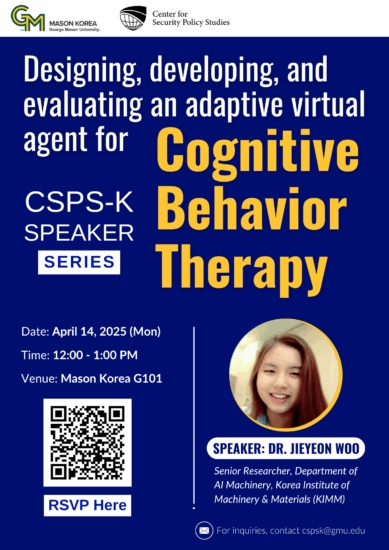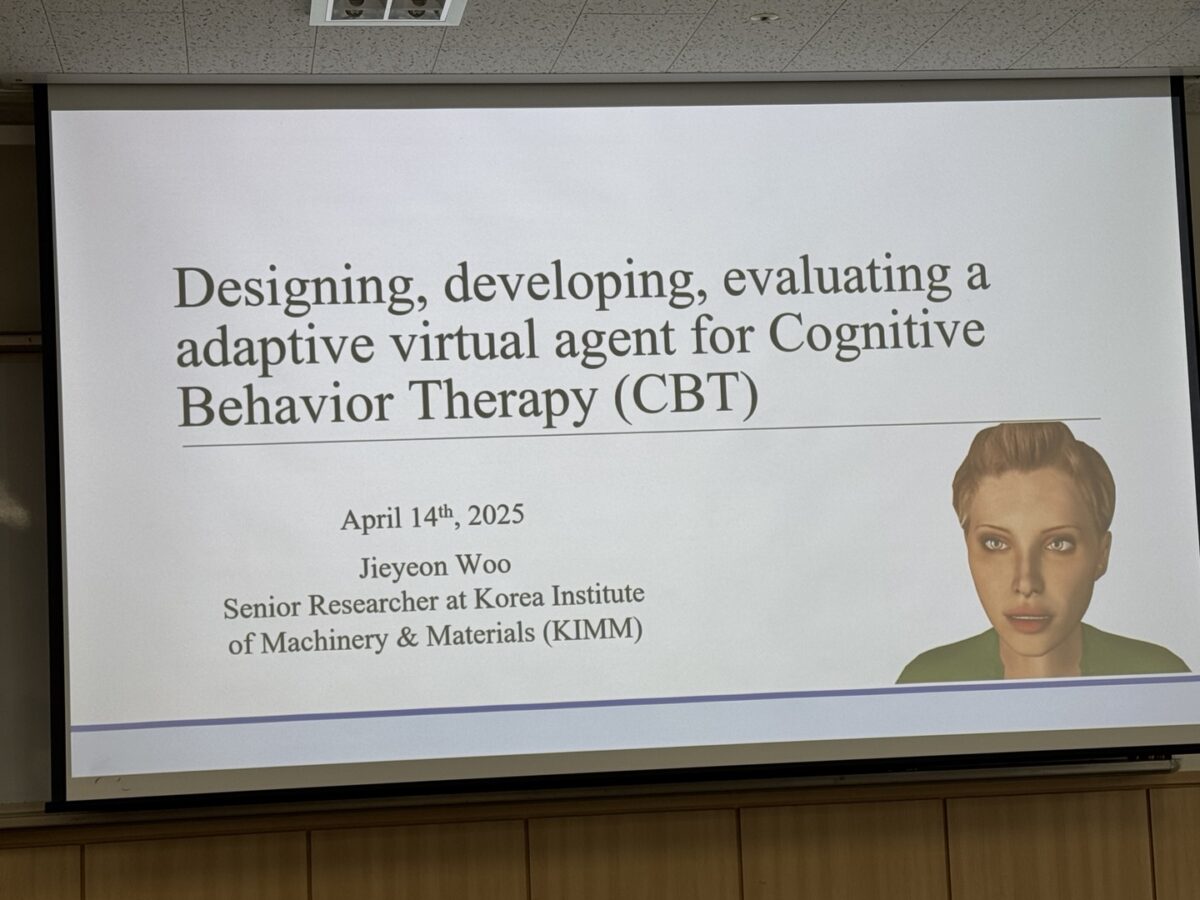On April 14, 2025, the Center for Security Policy Studies-Korea(CSPS-Korea) held its first Speaker Series in the Spring 2025 semester with Dr. Jieyeon Woo, Senior Researcher at the Department of AI Machinery at the Korea Institute of Machinery & Materials (KIMM).
With a background in artificial intelligence and human-robot interaction, Dr. Woo is currently a senior researcher at KIMM. Her research interests involve designing, developing, and evaluating socially interactive AI technologies, particularly modeling verbal and nonverbal behaviors of humanoid robots and socially interactive agents (SIAs). Dr. Woo received her Ph.D. from Sorbonne University, where she specialized in modeling natural and human-like behaviors in human-agent interactions. She continues to contribute to the interdisciplinary fields of robotics and human-machine interaction within KIMM, an institute contributing significantly to the development of the field of machinery in Korea.

Her talk, titled “Designing, developing, and evaluating an adaptive virtual agent for Cognitive Behavior Therapy (CBT),” focused on enhancing virtual agents by combining intrapersonal signals—such as facial expressions, speech patterns, and body language—with interpersonal interactions, the subtle cues exchanged during conversation. Dr. Woo explained that balancing these elements leads to more natural, synchronized behaviors that significantly improve the agent’s accuracy and human likeness.
She highlighted real-time applications, describing how the system uses cameras and microphones to capture user data, which is then processed through text-to-speech and 3D rendering technologies to create lifelike interactions. A key point was the system’s application in adaptive models for cognitive behavioral therapy (CBT); by detecting patients’ automatic negative thoughts and adjusting the dialogue accordingly, the approach showed improved mood, reduced anxiety, and enhanced cognitive outcomes compared to earlier models.
The lecture concluded by underscoring that while large language models require extensive data and may lack real-time subtleties, smaller, task-specific models offer a promising alternative for precise adaptive behavior in mental health and social skills training.
CSPS-Korea thanks Dr. Jieyeon Woo for sharing her valuable insights that enrich the academic discourse on future advancements in AI-driven cognitive behavioral therapy.




